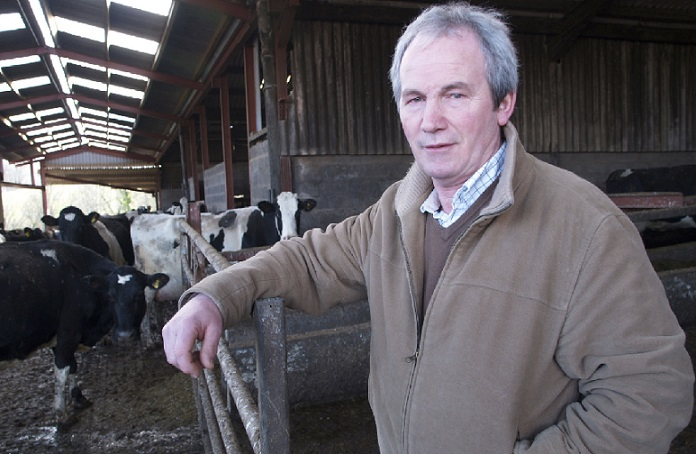
Speaking on the eve of the 2016 Royal Welsh Show, Stephen James, the President of NFU Cymru, said that talk of Brexit would dominate this year’s show.
Mr James said that significant changes were on the horizon for Welsh farmers, but emphasised that NFU Cymru has already taken part in key post-Brexit discussions in Cardiff Bay, Westminster and Brussels and that the union would continue to ensure its members’ voices were heard.
Wales’ Rural Development Programme and bovine TB were also topics raised by the NFU Cymru President during his address, highlighting the range of issues currently affecting the Welsh agricultural industry.
Speaking ahead of the Royal Welsh Show, NFU Cymru President Stephen James, said: "The Royal Welsh Show is the first time that the industry in its entirety will have gathered together to chew the fat on the referendum result.
"It is more important than ever that our industry uses this opportunity to highlight what we deliver to Welsh society.
"The Welsh Government Well-Being of Future Generations Act is about improving the social, economic, environmental and cultural well-being of Wales.
"The contribution that farming makes to the achievement of all of the well-being goals is unparalleled by any other industry.

"We have written to the First Minister and Cabinet Secretary to highlight the many ways in which we are achieving those goals.
"We have outlined that farming is the £6.1 billion cornerstone of the Welsh food and drink industry and the backdrop to the £2.5 billion tourism industry, showing that the Welsh agricultural industry is a key generator of wealth and employment of the people of Wales.
"Welsh family farms are typically linked with 40-80 other local businesses, underpinning the rural economy.
"From an environmental perspective, the sector is responsible for managing, protecting and enhancing over 80% of the land area of Wales.
"In the face of predicted challenges to our global food production in the future, Welsh farmers have a key role to play feeding the people of Wales and in contributing to current and future food security.
"Welsh farmers are also key promoters and protectors of Welsh culture, heritage and language, too.
'Agriculture works for Wales on so many levels'
"Agriculture works for Wales on so many levels it is imperative that we can work together with Government and our industry partners to build a post-Brexit Welsh Agricultural Policy that ensures we are competitive on UK, EU and global markets.
"We have hundreds of farmers who had hoped to enter Glastir in 2017 for the first time, many well on into agreeing a contract with Welsh Government.
"We have many hundreds more who will be coming to the end of current Glastir contracts in December unaware what will happen next, many of these will have been committed to agri-environment schemes for over 20 years.
"We also have a Wales Rural Development Programme that so far has not delivered the levels of investment support to farming businesses that we would have wished to see.
"For the remaining time that we have access to EU Rural Development support we must make sure that it delivers on the ground for Welsh farmers through supporting environmental activities on farm and supporting investment on farm in measures that can improve productivity.
"We very much look to our new Cabinet Secretary to ‘kick start’ the rollout of the Wales RDP, a programme that has very much ‘spluttered’ so far, despite having record levels of investment."
Bovine TB continues to cast a lengthy shadow'
Mr James continued: "Bovine TB continues to cast a lengthy shadow across the dairy and beef sectors in many parts of Wales.
"The number of animals slaughtered due to bovine TB continues to rise alarmingly with 8,932 cattle slaughtered in Wales in the 12 month period up to the end of April – this is a staggering 41% increase compared to the same 12 month period last year.
"I totally appreciate that when looking at a disease as complex as bovine TB that one should consider short term statistical changes in the context of long term trends.
However, behind all of these statistics lie numerous unseen stories of farming families in a state of despair and struggling under enormous emotional and financial strain, at a time when farm incomes and cash flow are already under massive pressure.
"Cattle movement controls, cattle testing and biosecurity all have a vital role to play in a TB eradication plan.
"But experience from across the globe have shown that a genuine TB eradication plan must also include a strategy for dealing with the disease reservoir in wildlife, in areas where it is endemic.
"It’s now time for Welsh Government to play their part to help to bring this devastating disease under control."
